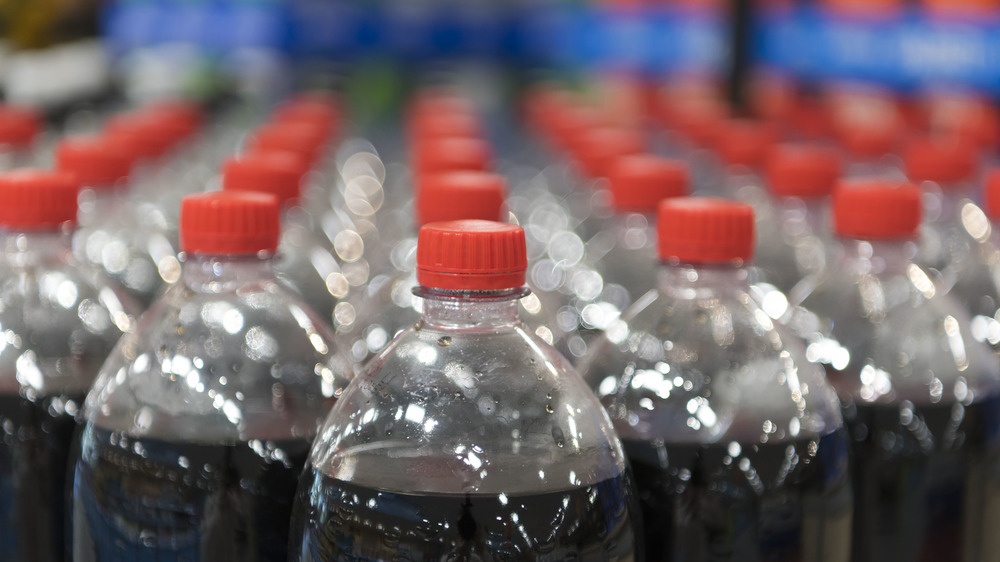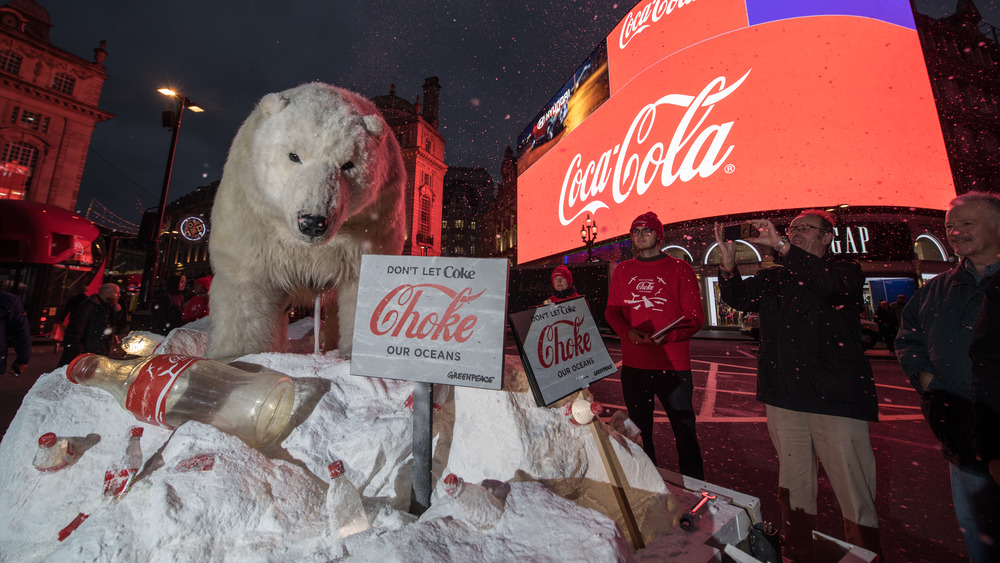This Soda Brand Is The World's Worst Plastic Polluter
Break Free From Plastic, a global movement for a plastic-free future, has released its annual audit of the worst plastic producing companies. During August and September of this year, they mobilized 14,734 volunteers across 55 countries to conduct 575 brand audits, namely picking up 346,494 pieces of plastic, 64 percent of which were branded.
As detailed in the report's press statement, the worst plastic producer for the third year running is Coca-Cola with 13,834 pieces of clearly branded plastic appearing 51 one of the countries searched. This is more than the next two combined which are Pepsico with its 5,155 pieces in 43 countries and Nestle with 8,633 pieces in 37 countries, both of which retained their spots for the last three years as well. Of the remaining seven, four are related to snacks, specifically Unilever, Mondelez, Mars, and Perfetti van Melle.
"It's not surprising to see the same big brands on the podium as the world's top plastic polluters for three years in a row. These companies claim to be addressing the plastic crisis yet they continue to invest in false solutions while teaming up with oil companies to produce even more plastic," according to Abigail Aguilar, Plastics Campaign Regional Coordinator of Greenpeace Southeast Asia. Worse, the report cites a study published in Science Advances in 2017 that calculated that out of the 6,300 megatons of plastic, only 9 percent has been recycled while 12 percent had been incarcerated, leaving 70 percent to lie in landfills.
How are Coca-Cola and co handling it?
In The Guardian's coverage of the report's release, they end by noting that Coca-Cola, Pepsico, and Nestle all had damage-control-oriented replies at the ready. "Globally, we have a commitment to get every bottle back by 2030, so that none of it ends up as litter or in the oceans, and the plastic can be recycled into new bottles," Coca-Cola's spokesperson said. This tracks with their stance at Davos in January, where activists the company to cut out plastic bottle production altogether, as reported by the BBC. Bea Perez, Coca-Cola's head of sustainability, said they had to think of their customers: "Business won't be in business if we don't accommodate consumers. So as we change our bottling infrastructure, move into recycling and innovate, we also have to show the consumer what the opportunities are. They will change with us."
A more concrete example of what Coca-Cola might have in mind for change was seen with Coca-Cola Brazil's return bottle initiative. As Packaging Europe explained, the idea is that, in exchange for a discount on a future purchase, Brazilians would return their empty bottles to the store, which would return them to Coca-Cola, who would clean, refill, and rebrand the bottles. This could be done 25 times, after which point the bottles are recycled. Now, why they can't change the distribution method to work more like a milkman with glass reusable bottle or have a centralized space for soda distribution in a manner similar to a McDonald's soda dispenser is never addressed.

